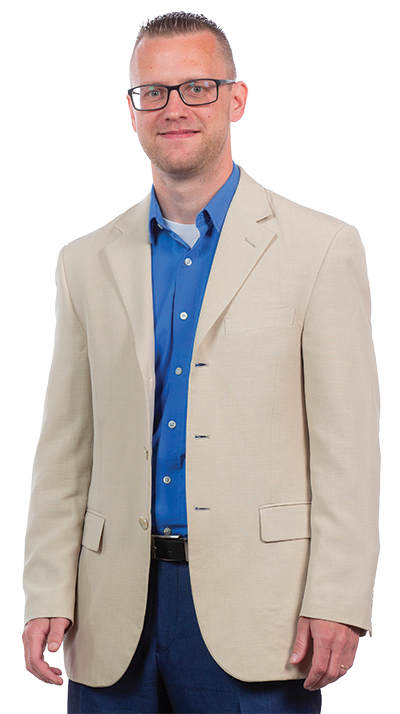“My background brings together diverse experiences in both academia and industry and across many different disciplines. That allows me to approach these problems in new and unique ways – and I’ve built a multidisciplinary research team that does the same,” said Pint, Charles Schafer (Battelle) Chair in Engineering and associate professor of mechanical engineering.
Integrated energy storage
Among other innovations to improve batteries, Pint’s team has designed a new class of Li-ion batteries that look and feel like carbon fiber reinforced composites but store energy like conventional batteries, opening the door to future transportation and electric grid storage systems. They’ve collaborated with NASA and others to consolidate on-board batteries into the structural parts – such as in CubeSat satellites.
The team has also used their expertise in batteries to forge new directions beyond energy storage. They’ve shown that reconfiguring components in a battery allows it to harvest, rather than store energy, leading to textiles that can harvest energy efficiently from human movement. They have also used their battery expertise to transform carbon dioxide from the atmosphere into valuable carbon nanotubes that are sought for applications from next-generation electronics to new durable composite materials.
Energized entrepreneurship
Pint has a knack for turning research outcomes into commercial ventures. One example of this is SkyNano Technologies where Pint is the co-founder and chief technology officer. SkyNano is manufacturing high-valued carbon materials from carbon dioxide emissions using a low-cost electrochemical process developed in Pint’s lab.
With support from the National Science Foundation’s SBIR/STTR and Department of Energy’s Carbon Utilization Program, among others, SkyNano is paving the way to technological materials for future batteries, tires, electronic devices, and more from the carbon polluting our atmosphere.
With all of this, Pint is just getting started: “Moving to Iowa State and working with researchers here in areas ranging from energy to agricultural sciences will not only enable us to accelerate our pace of innovation, but extend our advances in new directions” Pint said.
 Cary Pint, Charles Schafer (Battelle) Chair in Engineering and associate professor of mechanical engineering
Cary Pint, Charles Schafer (Battelle) Chair in Engineering and associate professor of mechanical engineering